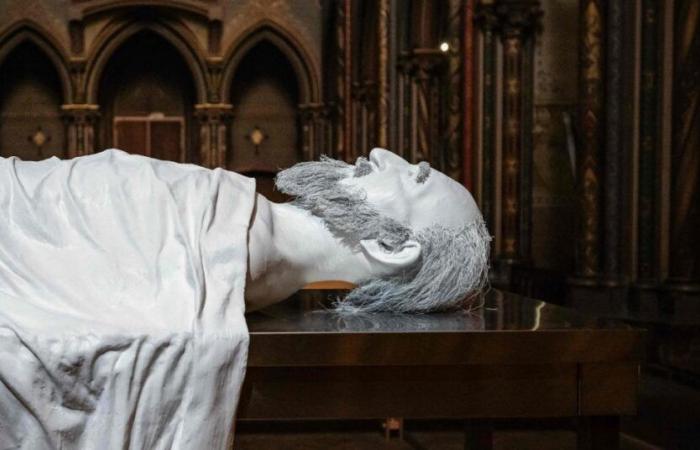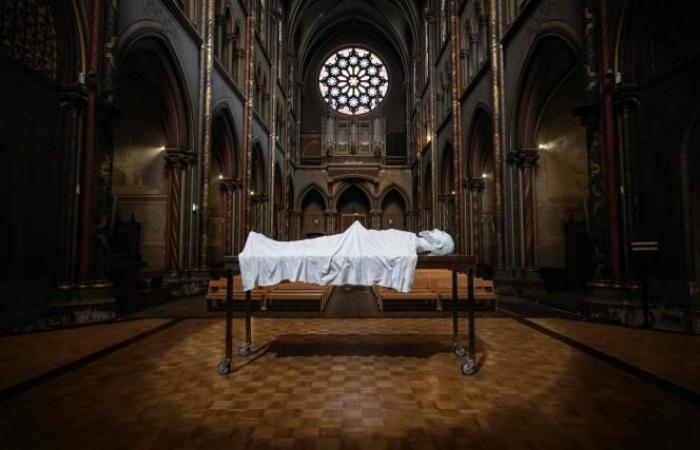The work, in a white color contrasting with the usual red resin used by the artist, represents the man of the Church on a metal mortuary cart, a sheet covering his body and suggesting an erection.
“He is dead, but the problem remains there,” explains Mr. Colomina to AFP, evoking the silence which has long allowed the alleged actions of the founder of Emmaüs to be ignored – “this completely ambivalent character, who has done an enormous amount of good and an enormous amount of harm” – and the lack of transparency of the Catholic institution in this matter.
“This installation (…) reminds us that even after death, the injuries and trauma caused by these acts continue to permeate the collective memory, haunting the victims and the whole of society,” he adds.
The work is exhibited in the deconsecrated church of Gesù, in the city center of Toulouse, and accompanied by religious songs in Latin.
The exhibition is open to the public only until Saturday.
Iconic figure in France and founder of Emmaüs, Abbé Pierre, whose real name is Henri Grouès, has been the target of a series of testimonies from women on sexual violence committed between the 1950s and the 2000s since July. including rape or against minors.
James Colomina, who describes himself as a “committed artist”, regularly denounces current events, such as when he installed on children’s playgrounds in Paris, New York and London, a sculpture of Russian President Vladimir Putin seated astride a miniature tank, after the outbreak of war in Ukraine.
During the Paris Olympic Games, he successively pointed out through artistic installations the banning of athletes forced to compete under a neutral flag, and the “excessive” investments made to clean up the Seine, which were not very effective according to him.







